
Pablo Picasso Composition “Peasants” 1906

“I believe that scientific knowledge has fractal properties, that no matter how much we learn, whatever is left, however small it may seem, is just as infinitely complex as the whole was to start with. That, I think, is the secret of the Universe.”
– Isaac Asimov, I Asimov, 1995

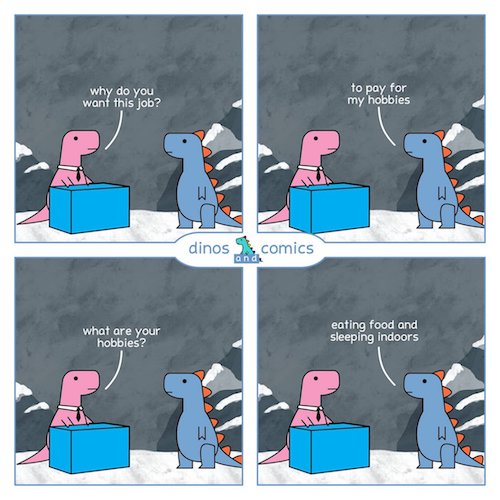

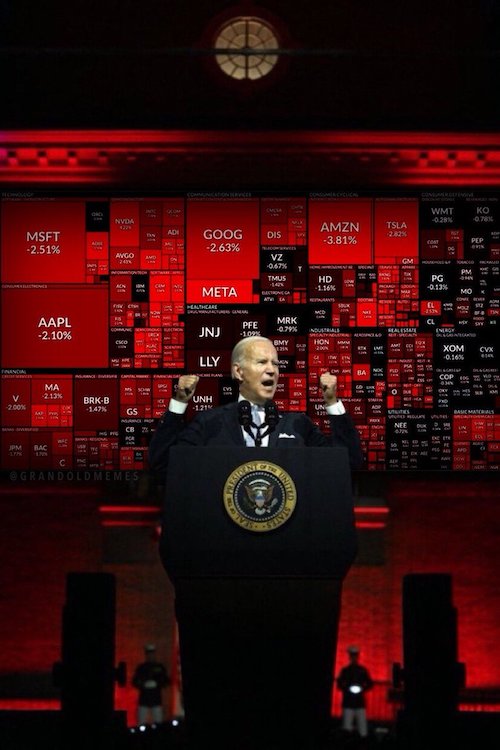

Moderna: The Art of the Steal
https://twitter.com/i/status/1569684117587128321

The Mediterranean in Australia
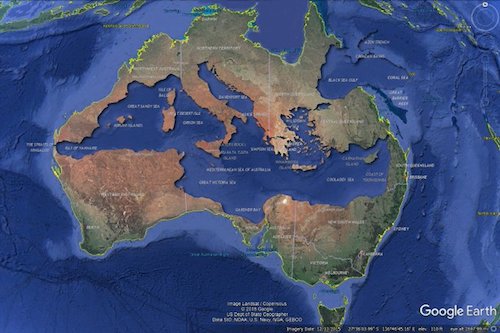

Tucker books
https://twitter.com/i/status/1569685375110578176


“Will Germany, France, Italy, and the rest now leap into a war against Russia on the plains of Ukraine in winter? I think they will sooner overthrow their own WEF-directed governments.”
• Is War What You Asked For? (Kunstler)
The New York Times today is ballyhooing the Ukraine military’s “lightning advance” east of Kharkov. I’d argue that what The Times wants you to see is not exactly what is happening. Rather the Russians appear to have made an orderly, tactical retreat from the outskirts of Kharkov, inducing the NATO-trained Ukraine forces eastward across the Siverskyi Donets River and out into the flat, open country where they will be cut off, cauldroned, and slaughtered. Everything that NATO and the US have done in this conflict has been a stupid move. Why should this one be an exception?
At the same time, Russia has hit a number of power generation plants around Ukraine, leaving many Ukrainians without lights, hot water, communications — in short, what’s needed to remain civilized. This was exactly what Russia had hoped to avoid the past eight months, but the obdurate pathological idiocy of our country’s leaders has forced Russia to send a harsher message to provoke some rational thought here about ending this conflict. There is even chatter on the web that Russia is about to declare that the special military operation is now a war, with all that implies about targets.
The US may be crazed beyond redemption, but the people of the NATO member countries might have had a clarifying experience lately watching their governments barter away the natural gas they desperately need to run industry and heat their homes this winter — in the foolish gesture of jumping on America’s sanctions bandwagon. Will Germany, France, Italy, and the rest now leap into a war against Russia on the plains of Ukraine in winter? I think they will sooner overthrow their own WEF-directed governments. This appears to be just what has happened in Sweden’s election on Sunday where a bloc of center-right parties has ousted the left government led by Prime Minister Magdalena Andersson.
The question for now is this: Will the US jump stupidly into World War Three over Ukraine? If not, how much does Russia have to disrupt life in the rest of Ukraine outside the Donbas to drive the US and NATO into serious peace talks? It better happen soon because otherwise the West will be completely preoccupied with the collapse of its financial markets, currencies, and economies — and probably before the November elections here.

“The proverbial ‘cancel culture’ has become a cancellation of culture,” as President Putin said.”
• Civilisation Or Barbarism – Western Dusk, Eastern Dawn (Hoppe)
For some time, the festering unipolar power – the Anglo-American empire – has been the self-appointed magistrate claiming jurisdiction over the planet, as it became the accepted ‘”moral authority of interpretation” in (at least) the western world and was able to exert its influence on public opinion pretty much everywhere. The transatlantic neo-liberal propaganda machine and its various mechanisms of infiltration have always been a powerful tool – they are in fact the imperialist forces’ greatest weapons… stronger than cluster bombs, because they have a global reach and infect minds, while leaving the outward appearance intact.
A brilliantly devious tactic was its appropriation and abuse of symbols, slogans and terminology of the once authentic “left” and “progressive” movements. One of its noxious characteristics is the brazen attempt to rewrite history for its own benefit. With this appropriation, Nazis are seen as freedom fighters, the Russians as Fascists, kleptocracies as democracies, conservatives as right-wingers… and neo-liberals as left-wingers and rebels, with this last group attracting incalculable adulators of the “progressive mindset” in culture and academia, who, in turn, promote the ideas of the neo-liberals. Pasolini clearly expected this back in 1975: “I prophesy the era in which the new power will use your libertarian words to create a new homogenised power, to create a new Inquisition, to create a new conformism. And your clerics will be left-wing clerics.”
Unfortunately, many literary scholars, analysts and journalists have underestimated the imperialist and colonialist infiltration into other cultures around the world… which is why many now seem stupefied at the extent to which postmodern neo-liberal “culture” has overshadowed the local cultures of non-Western countries… Unfortunately the youth of these countries, thanks to global consumerism, have little to no other orientation and roots for their own culture… and they face many identity crises. If one does not conform to the hegemonic narrative, one is erased from the mainstream press, from social media and, in many cases, from society… (And some journalists even end up in prison or are blacklisted.) And this increasingly applies to cultures, as well.
In addition to the fashionable trend today of tearing down statues of those repudiated by the ‘woke magistrates’, artists and thinkers from “territories seen as hostile” by the hegemony and NATO are being erased – for example: Russian artists past and present (e.g. Dostoevsky, Tchaikovsky, Chekhov, conductor Valery Gergiev, soprano Anna Netrebko)… Even the letter “Z” is seen as a hostile character of the alphabet in many western countries… “The proverbial ‘cancel culture’ has become a cancellation of culture,” as President Putin said.

“Their people will harvest their grief in full. The land will be on fire and the concrete will melt..”
• Medvedev Issues Apocalyptic Warning To West Over Ukraine (RT)
Western “half-wits” from “stupid think tanks” are leading their countries down the road of nuclear armageddon with their hybrid war against Moscow, former Russian president Dmitry Medvedev wrote on his Telegram channel on Tuesday. Endlessly funneling weapons and support to Ukraine while pretending not to be directly involved in the conflict will not work, added the deputy chair of the Russian Security Council. The “security guarantees” proposal unveiled by Kiev on Tuesday was “really a prologue to the Third World War,” said Medvedev, calling it a “hysterical appeal” to Western countries engaged in a proxy war against Russia.
If the West continues its “unrestrained pumping of the Kiev regime with the most dangerous types of weapons,” Russia’s military campaign will move to the next level, where “visible boundaries and potential predictability of actions by the parties to the conflict” will be erased and the conflict will take on a life of its own, as wars always do, Medvedev argued. “And then the Western nations will not be able to sit in their clean homes, laughing at how they carefully weaken Russia by proxy. Everything will be on fire around them. Their people will harvest their grief in full. The land will be on fire and the concrete will melt,” Medvedev wrote, before citing a Bible verse from Revelations 9:18.
“Yet still the narrow-minded politicians and their stupid think tanks, thoughtfully twirling a glass of wine in their hands, talk about how they can deal with us without entering into a direct war. Dull idiots with a classical education,”Medvedev wrote. His comments were prompted by Kiev’s publication of a “security treaty” proposal, developed under the tutelage of former NATO secretary-general Anders Fogh Rasmussen. The draft envisions the US and its allies guaranteeing Ukraine’s pre-2014 borders with weapons, ammunition, financial assistance and training, as well as committing to maintain sanctions against Russia for as long as Kiev wants, and handing over any confiscated Russian property to Ukraine.

Delusion galore.
• Kiev Publishes Security Guarantee Proposal (RT)
Ukraine has presented a proposal of recommendations for security guarantees, which would politically and legally bind the country and its guarantor states in a strategic partnership known as the ‘Kiev Security Treaty.’ The proposals, developed at the request of President Vladimir Zelensky and published on Tuesday, were drawn up by an advisory group headed by former NATO secretary general Anders Fogh Rasmussen. Kiev suggests countries including the US, UK, Australia and Turkey could act as security guarantors for Ukraine. The “multi-level”approach would see a “core” group of allies making clear commitments to support Ukraine’s military, while a broader group would provide non-military guarantees based on sanctions.
“We need a military force strong enough to repel the Russians’ desire for revenge. And one capable of causing irreparable damage to the aggressor if this desire turns out to be irresistible,” Zelensky’s chief of staff Andrey Yermak said. He said the agreement would not be a substitute for joining NATO, but a means of ensuring security until Ukraine officially joins the US-led military bloc. Former NATO secretary general Rasmussen said the “immediate priority” was to achieve victory for Kiev and stressed that Ukraine would require decades of support from its Western partners. Security guarantees for Ukraine was a main sticking point in talks with Russia in Istanbul in March.
Moscow argued that if Ukraine promised not to seek NATO membership, it would be provided with guarantees from a number of countries, including Russia. Talks eventually came to a halt after Ukraine’s negotiators insisted on sovereignty over the Crimean peninsula, which seceded from Kiev’s rule in 2014 and joined the Russian Federation following a public referendum. The ‘Kiev Security Treaty’ proposal has been in the works for months. Russia has previously insisted that the only promises of security for Ukraine can be provided by Moscow. “No one will accept Ukraine into NATO now. The alliance consists of Russophobes, but it is not suicidal,” he said, arguing that the US will cease to care about Ukraine when it is convenient.

What a great idea.
• West Considers Arming Ukraine With More Potent Weapons – FT (RT)
The US and its allies are in talks over whether to send Ukraine more advanced weapons in the future, including fighter aircraft, a US defense official has said, according to the Financial Times. Some of Kiev’s Western allies were emboldened by last week’s successful offensive against Russia in Kharkov Region, the British newspaper reported on Tuesday. They are now discussing “Ukraine’s longer-term needs,”according to the anonymous US source. Some believe it would be appropriate to send warplanes to Ukraine in the “medium to longer term,” the source said, according to the publication. Western nations previously refused to provide fighter jets to Ukraine, citing the time it would take to train Ukrainian pilots, issues with servicing advanced weapon systems on the ground, and a risk of escalation in the conflict with Russia.
Kiev made some progress in talks with Slovakia, a former Warsaw Pact member, which said it could provide its older Soviet-made jets to bolster the Ukrainian legacy fleet. The Slovakian military retired its MiG-29s in late August. The offensive in Kharkov Region was touted by US officials as a major success for the Ukrainian military, which in previous months had suffered a number of defeats on the battlefield against Russian and Moscow-allied forces. US Secretary of State Antony Blinken claimed on Monday that Kiev’s forces had made “significant progress” after benefiting from Western support “in terms of making sure that Ukraine has in its hands the equipment it needs to prosecute this counteroffensive.” Western intelligence agencies played a key part in preparing the Ukrainian operation, according to Mark Warner, the chair of the US Senate Intelligence Committee.

They had 50,000 troops in the recent war games in the east. Why would they need a draft?
• Kremlin Denies Plans For War Declaration & National Draft (ZH)
On Tuesday the Kremlin addressed widespread speculation and rumors that President Vladimir Putin is planning to issue a full declaration of war as Russian forces pull back from Kharkiv, in a Ukraine counteroffensive that Kiev leaders and their Western allies are hailing as a major success. A war declaration would trigger mass mobilization and a draft. “Russia is not planning to declare a mass national draft for the war in Ukraine,” the Kremlin stated, amid reports its forces are suffering fatigue, low moral and manpower shortages. Kremlin spokesman Dmitry Peskov emphasized this is not under discussion at this point: “Not at this point. No, we are not discussing that,” he said when asked about widespread reports, as quoted in TASS news.
Peskov was then pressed about the degree to which Ukrainian forces had advanced into Russian lines in the northeast, amid ongoing heavy fighting, but he declined to address the ground situation. “This [question] is for the Defense Ministry. I simply do not have accurate information,” he said. There does appear to be growing pressure from inside Russia to act, according to The Moscow Times: Lawmaker Mikhail Sheremet, a member of the State Duma’s Security Committee and the ruling United Russia party, spoke out in favor of general mobilization on Monday, according to the URA.ru news agency. “Without full mobilization, [without] switching to the war mode, including the economy, we will not achieve the desired results,” the agency quoted Sheremet as saying.
“I am talking about the fact that today society should be consolidated as much as possible and aim for victory,” said the deputy. There have meanwhile also been signs in Russian domestic media and among popular pundits of a narrative shift that is increasingly recognizing recent Russian losses and setbacks, and the need for a strategy overhaul, as well as growing criticism of how the “special operation” is being managed. Very likely there’s under-the-surface ratcheting tensions across the population due to mounting casualties among the country’s young men who’ve been thrust into battle these past seven months.

Reality 1, Von der Leyen 0.
• Leaked Paper Reveals EU Is Unlikely To Cap Price Of Russian Gas (G.)
The EU executive is retreating from imposing a price cap on Russian gas, but pushing ahead with windfall taxes on energy company “surplus” profits, according to a leaked document. A draft regulation on the “electricity emergency tool” seen by the Guardian contains neither a price cap on Russian gas nor on imported gas, after member states were unable to agree on restrictions last week. The EU is expected to levy windfall taxes on the high profits of fossil fuel companies, with a separate cap on revenues of low-carbon electricity producers. The European Commission president, Ursula von der Leyen, is expected to publish Europe’s plan on dealing with surging electricity prices when she makes her annual state of the union speech on Wednesday.
The final text could still change, but the draft reveals the Commission’s doubts over gaining enough support from EU member states for its preferred option of putting a cap on Russian gas in response to what it has called the Kremlin’s weaponisation of supply. EU member states that import large amounts of gas from Russia, including Hungary, Slovakia and Austria, have spoken out against a cap on Russian gas because they fear the Kremlin would halt all gas flows, plunging their countries into recession. The Russian president, Vladimir Putin, has already threatened to halt energy exports to Europe if such a plan is agreed.
About a dozen countries, including France and Poland, would like to impose a price cap on all imported gas, which they see as a better way to curb surging prices. The Commission is unenthusiastic about this idea, because it fears the EU would lose out to countries prepared to pay more in the highly competitive market for liquefied natural gas. The Netherlands and Denmark are wary of any price cap, while Germany fears a price cap on Russian gas would be divisive. With member states divided, the Commission, which is responsible for drafting EU legal proposals, is pursuing measures that unite the 27-member club. EU governments are largely supportive of capping the price of electricity from low carbon sources, such as renewables or nuclear, and recycling these funds to vulnerable households and businesses.

“A few weeks like this and the European economy will just go into a full stop. Recovering from that is going to be much more complicated than intervening in gas markets today..”
• Why The EU Is Struggling To Bring Its Energy Crisis Under Control (OP)
Last Friday, the energy ministers of the 27 EU members met for an emergency discussion of the energy supply situation in the bloc. The one thing they agreed on was implementing a ceiling on the revenues of power utilities that do not use gas to generate power. What they did not agree on was everything else the Commission suggested last week, including a price cap on Russian gas, a cap on final energy prices, and a direct intervention in EU electricity markets. It’s hard to get 27 countries to agree on so many things without any compromise. This is why the EU’s survival plans for the winter may never work as intended.
Last week, the European Commission, headed by Ursula von der Leyen, proposed that EU member states impose a price cap on Russian natural gas imports, a mandatory cut in energy consumption across the bloc, and a cap on the revenues of power utilities that do not use gas. The Russian gas price cap was one of the items that divided the EU at the Friday discussions after Russia’s President, Vladimir Putin, warned that any country imposing a price cap on Russian oil or gas would stop receiving them. Some EU members argued in favor of a gas price cap for all gas imports into the bloc, following a similar suggestion made by Poland earlier this month. Some 15 members of the EU were in favor of such a move, but others were skeptical. And they were right to be skeptical: Norway, the EU’s gas savior, has signaled it would not accept a cap on the price it gets for its gas.
“That’s not a solution we’d propose, we don’t think it answers the EU’s challenges,” Prime Minister Jonas Gahr Stoere said, adding, “I tell my European colleagues that I’m not the one who sells the gas.”The problem is that the European Union does not have all the time in the world to discuss how to go about saving its economy and its citizens from blackouts this winter. And as Bloomberg pointed out in a recent analysis of the situation ahead of the energy ministers’ meeting, speed is not among the things the European Union is known for. Belgium’s Prime Minister put it bluntly. “A few weeks like this and the European economy will just go into a full stop. Recovering from that is going to be much more complicated than intervening in gas markets today,” he told Bloomberg last week. “The risk of that is de-industrialization and severe risk of fundamental social unrest.”

So you pay 4x more for energy, and then you pay another $1,000 per capita to bail out your energy company.
• Berlin Prepares Massive Energy Bailout (RT)
Germany is planning to allocate €67 billion ($67 billion) to provide financial aid to domestic energy companies hit by supply shortages resulting from the sharp decrease in natural gas imports from Russia, the business daily Handelsblatt reported on Tuesday, citing sources close to the federal government.The massive financial package is expected to help KfW, the German state-owned investment and development bank, to provide guarantees and liquidity assistance to local energy firms. The funds will reportedly be transferred from the WSF (Economic Stabilization Fund), which was created during the Covid-19 pandemic. “In view of the price increases, forward-looking action by the federal government and KfW is required,” government sources told the media.
Gas prices throughout the EU have surged in recent months as a result of sanctions imposed on Moscow over the conflict in Ukraine, and the reduction of Russian supplies. EU leaders had previously announced plans to reduce gas consumption by 15% from August 1 until the end of March 2023. Member states have discretion over the specific measures adopted to achieve the goal. “The Federal Ministry of Economics has received various applications for liquidity bridging from companies in the gas and energy supply sector, they are currently being examined,” an internal government paper seen by Handelsblatt reads. “The volume of applications is in the low double-digit billions.” Earlier this month, Germany’s largest gas importer, Uniper, asked for extra government aid due to financial losses from its attempts to replace Russian natural gas by buying gas on the spot market.

“In the grip of a terrible crisis, probably in its last gasps, the US empire can’t even remotely conceive a new Marhall plan. On the contrary, it is behaving like the old Soviet Empire.”
• Elegy for a Disappearing Empire (PL)
[..] the Soviet Union just could not afford costs equivalent to the Marshall plan. So, the behavior of the US empire was, and remains, dictated by practical factors rather than ideological ones. When the US had a considerable surplus, it could afford an extravaganza such as the Marshall plan. Not just an extravaganza, though. It was also a good investment since the European states were a much better barrier against a possible Soviet attack if they were economically strong. Note also that the economic aid of the Marshall plan didn’t come without strings attached. To have the money, the Western European states had to cut all ties with the Soviet Union and with the states of the Warsaw Pact. And the local communist parties, at that time still relatively strong, were to be kept outside government coalitions.
Now, of course, things have changed a lot. In the grip of a terrible crisis, probably in its last gasps, the US empire can’t even remotely conceive a new Marhall plan. On the contrary, it is behaving like the old Soviet Empire. The whole West is turning into a police state, where the government controls all the media and criminalizes dissent . Then, it is not surprising that the imperial center is extracting resources from its client states in Western Europe to the point of beggaring them. The discussion could be long and detailed but I think that, as usual, we can find much food for thought in the behavior of past empires. In particular, I think that a good illustration of the behavior of empires is given by how the Romans dealt with the Britons during the period that goes from the 1st century BC to the 3rd century AD.
We see how the annexation of the Britons was only in part obtained by a military invasion. Mostly, it was a question of assimilation. The Romans “romanized” the Britons, making them appreciate such things as the Roman money and the luxury items that money could buy. Then, they tricked them into borrowing money from Rome and, finally, when they could not repay the debt, they used that as an excuse to seize their assets and their lands. The similarities between the behavior of the US empire with Western Europe are evident. First, they offered money to the Europeans to rebuild their economy, and now they are squeezing Europe dry.

From the chair of global public health at the University of Edinburgh: “The real reason is as mundane, and tragic, as an underfunded NHS still struggling with the terrible effects of Covid..”
NHS, extreme heat, and Covid. What vaccines?
• What’s Behind The Mystery Of Thousands Of Excess Deaths This Summer? (G.)
Over the past couple of months, deaths in England and Wales have been higher than would be expected for a typical summer. In July and August, there were several weeks with deaths 10% to 13% above the five-year average, meaning that in England about 900 extra people a week were dying compared with the past few years. The leading causes of death are within the typical range (the five-year average): heart and lung diseases, cancers, dementia and Alzheimer’s disease. Covid-19 deaths could account for half of the excess mortality, but the other half is puzzling, as there’s no one clear reason that jumps out.
It’s likely to be a mix of factors: Covid is making us sicker and more vulnerable to other diseases (research suggests it may contribute to delayed heart attacks, strokes, and dementia); an ageing population; an extremely hot summer; and an overloaded health service meaning that people are dying from lack of timely medical care. This winter, the cost of living crisis and concerns about fuel poverty will add to these contributory factors, given the links between deprivation and ill health. So we may see these excess death numbers continue.
The excess mortality puzzle has been weaponised by some to argue that this is a delayed consequence of lockdown. In essence, this is to say that mandatory restrictions on mixing and stay-at-home legal orders, as well as turning the NHS into a Covid health service during the first and second waves of infection, prevented people from being diagnosed or treated for other conditions such as cancer, heart disease, or even depression – and that those long-hidden conditions are now killing people. Of course, some medical care suffered during the pandemic, and delayed diagnosis leads to poor health outcomes. But to say that not having restrictions would have solved this problem is naive. Restrictions ultimately limited the number of people hospitalised for Covid-19 at any one time, so that the health services could cope with these numbers. Healthcare is finite: the best way to preserve resources for non-Covid conditions was to keep Covid infections as low as possible.

Quelle surprise.
• Liz Truss Energy, Tax Plan ‘Will Give Richest Families 2x As Much Support’ (G.)
Liz Truss’s plans for an energy price freeze and sweeping tax cuts will give Britain’s richest households twice as much financial support with living costs as the poorest households, according to a leading thinktank. The Resolution Foundation said the prime minister’s energy package, announced hours before news of the death of the Queen last week, would come with a “colossal” price tag for taxpayers that was poorly targeted to help those most in need when combined with tax cuts promised in her leadership campaign. It said the richest tenth of UK households would receive £4,700 in support, on average, from the government’s “energy price guarantee” and cuts to national insurance – far in excess of the £2,200 support for a typical household in the poorest tenth.
The intervention comes as details of the new prime minister’s plan to support struggling households remain unclear, after she chose to hold back from publishing the costings for her proposal until a mini-budget, expected to take place next week. The Resolution Foundation said the plan to limit an increase in the cost of a typical household energy bill to £2,500 for two years from October would cost about £120bn. It warned that Truss’s plan to avoid a fresh windfall tax on energy producers would mean heaping the cost on taxpayers, with as little as £1 in every £12 spent on energy support for households recouped directly from higher taxes on energy firms.

Follow the money, not the science.
• Big Banks Making a Killing Off Global Hunger, Energy Crises (CD)
Russia’s war on Ukraine has wreaked havoc on global commodity markets, driving up energy and food prices and exacerbating hunger emergencies around the world. But while disastrous for the global poor — millions of whom are living on the brink of famine — the chaos has been a major boon for Wall Street giants, according to new data showing that the world’s 100 largest banks are on pace to smash commodity trading profit records this year. “The 100 biggest banks by revenue are set to make $18 billion from commodities trading in 2022,” Bloomberg reported last week, citing figures from the London-based firm Vali Analytics. “That would be the highest in the data, which goes back 14 years, and exceed the previous high watermark in 2009.”
“The prediction is the latest evidence that the wild swings in energy prices triggered by the war in Ukraine are delivering a boon to commodity traders, even as they push European nations into crisis,” Bloomberg added. “Vali, an analytics firm that tracks trading business, compiled data that includes the leading five banks in commodity trading: Macquarie Group Ltd., Goldman Sachs Group Inc., JPMorgan Chase & Co., Citigroup Inc., and Morgan Stanley.” Though the prices of wheat and other food staples have fallen from their peak in recent months, they remain significantly elevated compared to last year, according to the United Nations’ Food and Agriculture Organization, leaving millions vulnerable to hunger and starvation.
The World Food Program estimates that “as many as 828 million people go to bed hungry every night” and “the number of those facing acute food insecurity has soared — from 135 million to 345 million — since 2019.” Energy prices have also eased but remain high, contributing to cost-of-living crises throughout Europe and other parts of the globe. “People’s misery makes capitalists’ superprofit,” Salvatore De Rosa, a researcher at the Lund University Center for Sustainability Studies, tweeted in response to Bloomberg’s reporting. “How do you reform this?” Wall Street banks have not just benefited from the commodity price increases — they’ve actively helped fuel them, experts say.
“We’re in a market where speculators are driving prices up,” Michael Greenberger, former head of the Division of Trading and Markets at the U.S. Commodity Futures Trading Commission, told Mongabay in July. “Commodity markets are supposed to be hedging markets for people who are dealing with the commodity involved,” Greenberger said. “In the case of wheat, it would be farmers and people buying wheat. But if we looked at it, there would be banks in there with no interest in what the price of wheat is, writing swaps and controlling this price.”
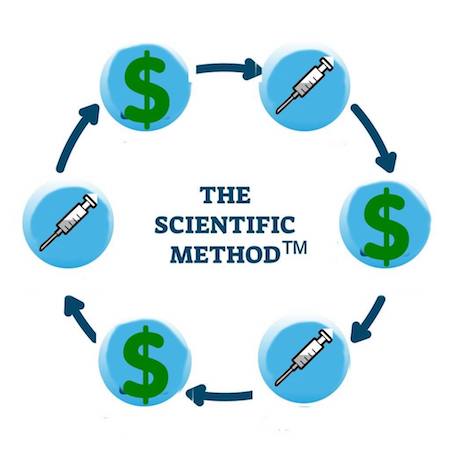

“..the Fed’s book still remains just a touch under $9 trillion, which is double what it was going into the pandemic period, and since the financial crisis of 2008.”
• The Fed Is Going To Pivot In 3 Stages – Nomi Prins (CNBC)
The U.S. Federal Reserve could be forced to pivot away from its path of aggressive interest rate hikes in three stages, according to author Nomi Prins. Markets expect the central bank to enact a third consecutive 75 basis point hike at its monetary policy meeting later this month, the fastest pace of monetary tightening since policymakers began using the benchmark Fed funds rate as the principal policy tool in the early 1990s. Various Fed officials have reiterated the Federal Open Market Committee’s commitment in recent weeks to reining in inflation, but Prins told CNBC Tuesday that the acceleration of interest rate hikes to soothe the markets was disconnected from the economic reality faced by many.
“This period of accelerating the rate hikes that we’ve seen so far has impacted the real economy because it has squeezed the borrowing costs … for real people, real consumers,” she said. “Whereas for the Street in general, historically money still remains cheap and leverage still remains high in the system, and the Fed’s book still remains just a touch under $9 trillion, which is double what it was going into the pandemic period, and since the financial crisis of 2008.” Despite the broad market expectation for further 75 basis point hikes, Prins – a global economist and outspoken advocate for economic reform – said the Fed would likely pivot away from its hawkish trajectory in three stages as the disconnect between wealthy investors and institutions and the “real economy” widens.
Having firstly reduced the pace of rate hikes to 50 basis points and then neutralized policy, Prins expects the Fed to begin reversing course and becoming “accommodative,” with the U.S. already having recorded two consecutive quarters of negative GDP growth. “Whether that’s to cut rates or to increase the size of its book again, that still remains to be seen,” Prins added.

The swamp stinks.
• New Durham Bombshell: Steele Primary Source Was Paid FBI Informant (JTN)
In a bombshell revelation, Special Prosecutor John Durham revealed Tuesday in court filings that the FBI paid a Russian businessman as a confidential human source in the investigation of Donald Trump’s 2016 campaign even though it had prior concerns that businessman was tied to Moscow’s intelligence services. Durham persuaded the federal judge in the upcoming trial of Igor Danchenko to unseal a motion revealing that Danchenko, the primary source of the now-discredited Steele dossier, was paid by the FBI as a confidential human source for more than three years until the fall of 2020 when he was terminated for lying to agents. Danchenko is charged with five counts of lying to the bureau during that relationship and faces trial next month in federal court in the Virginia suburbs of Washington D.C.
“In March 2017, the FBI signed the defendant up as a paid confidential human source of the FBI,” Durham’s unsealed court filing disclosed for the first time. “The FBI terminated its source relationship with the defendant in October 2020. As alleged in further detail below, the defendant lied to FBI agents during several of these interviews.” The revelation means that the FBI first fired former MI6 agent Christopher Steele, the author of the Hillary Clinton-funded dossier, as a human source in November 2016 for having unauthorized contacts with the news media. And it then turned around a few months later and hired Steele’s primary informer to work with the bureau even after determining some of Danchenko’s statements in the Steele dossier were uncorroborated or exaggerated.
Even more stunning, Durham confirmed that the FBI had concerns about Danchenko’s ties to Russian intelligence a decade earlier, opening up a counterintelligence probe on him after learning he was trying to buy classified information from the Obama administration. “As has been publicly reported, the defendant was the subject of an FBI counterintelligence investigation from 2009 to 2011,” Durham wrote. “In late 2008, while the defendant was employed by a prominent think tank in Washington, D.C., the defendant engaged two fellow employees about whether one of the employees might be willing or able in the future to provide classified information in exchange for money.

“Chairman of Natural England and a long-term adviser to Charles, Mr Juniper has spoken of the “incredible depth” of his knowledge and the “absolutely enormous” impact he has had.”
Oh sweet Jesus…
• Charles Will Not Cool On Climate Action, Say Friends (BBC)
Will King Charles III turn his back on a lifetime of environmental campaigning? As Prince of Wales he spent decades campaigning, cajoling, and convening meetings to drive action on environmental issues. As king he is subject to different rules – the monarch is obliged to remain politically neutral. But his friends and advisers say he will not cool on the issue of global warming. Might urging action on key global issues like climate change or biodiversity loss be part of what a modern monarchy looks like? King Charles’ interests have ranged from tropical forests to the ocean depths, from sustainable farming practices to water security. They began long before such concerns became mainstream. Within months of his investiture as Prince of Wales in 1969, the 20-year-old Prince Charles wrote to Prime Minister Harold Wilson worried about the decline of salmon stocks in Scottish rivers.
“People are notoriously short-sighted when it comes to questions of wildlife,” he complained. Increasingly he has focused on tackling global warming, which he regards as one of the greatest challenges humanity has ever faced. He was a major presence at the COP26 global climate summit in Glasgow last year, urging world leaders to work together to save the planet during a speech at the opening ceremony. When I interviewed him ahead of COP26 he told me “It has taken far too long” for the world to respond to the risks of climate change. I pointed out world leaders would soon be gathering to talk about the climate crisis, he responded: “But they just talk, the problem is to get action.”
He even said he understood why some people felt motivated to take to the streets with organisations like Extinction Rebellion, noting “people should really notice how despairing so many young people are”. As for the risk of not taking action, he was very clear: “It will be a disaster. It will be catastrophic. It is already beginning to be catastrophic because nothing in nature can survive the stress that is created by these extremes of weather.” The veteran green campaigner Tony Juniper rates the new king as “possibly the most significant environmental figure of all time”. Chairman of Natural England and a long-term adviser to Charles, Mr Juniper has spoken of the “incredible depth” of his knowledge and the “absolutely enormous” impact he has had.
Charles net zero
King Charles III calls for a military style campaign to enforce the private sector to adhere to net zero… the main sectors targeted will be energy, agriculture and transportation… pic.twitter.com/nTtVxTWnBn
— Pelham (@Resist_05) September 12, 2022




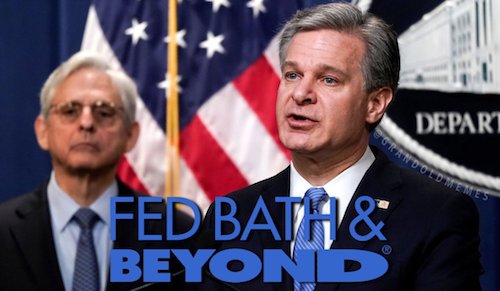

Special master
The Court appointed an adversarial Special Master, Gary Naftalis, to determine if the Blind Sheik’s lawyer had attorney client privilege. Trump Office at MAR is clearly where Trump met with his attorneys over his whole career. pic.twitter.com/vicC05bWF1
— George Webb – Investigative Journalist (@RealGeorgeWebb1) September 13, 2022

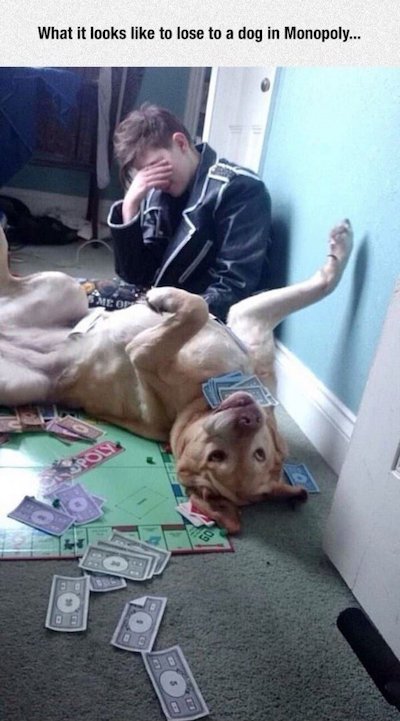

Andrew Marr
'This is frankly pathetic.'
Andrew Marr's devastating takedown of 'idiotic heavy-handed policing' as people have been arrested for protesting against King Charles.@AndrewMarr9 pic.twitter.com/nu86yuLUsq
— LBC (@LBC) September 12, 2022

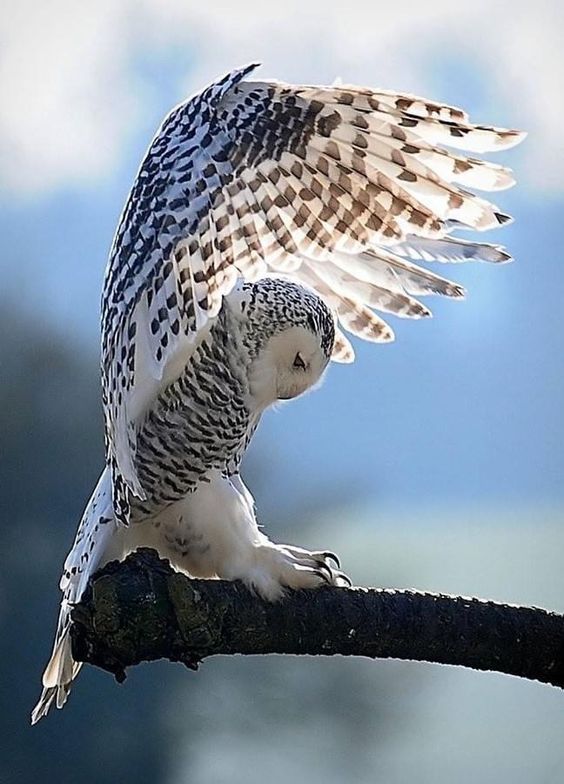

Support the Automatic Earth in virustime with Paypal, Bitcoin and Patreon.








